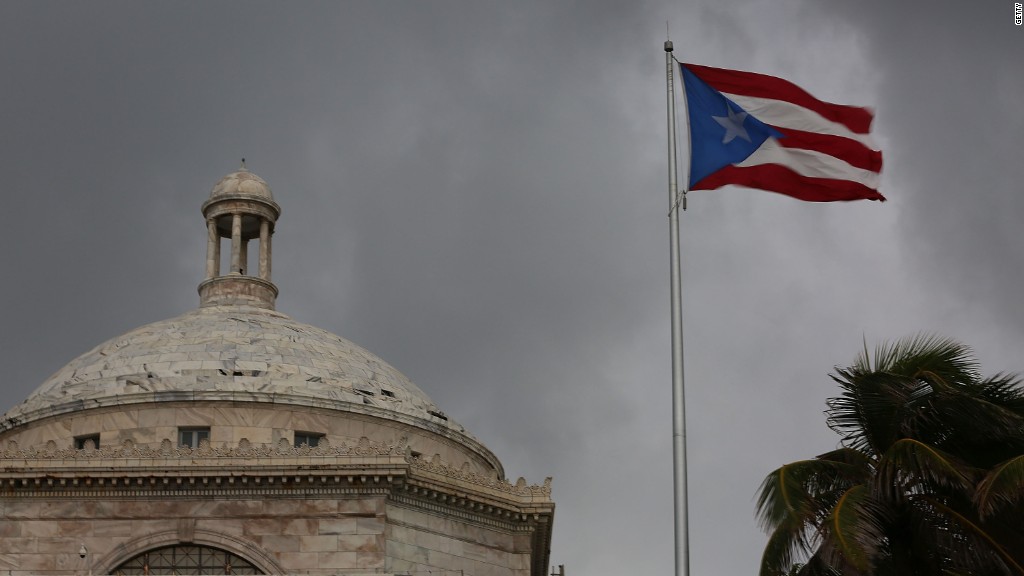
Puerto Rico's debt debacle could soon get a lot worse.
The island's government must pay about $1 billion to its creditors on January 4 to avoid defaulting for the second time since August. Even if it pays on time, Puerto Rico will still be saddled with a ton of debt -- roughly $73 billion in total, according to Moody's.
The odds of Puerto Rico making the January payment aren't good.
"It will be very, very hard, very difficult to find a way to do that payment," Alejandro Garcia Padilla, Puerto Rico's governor, recently told CNN. "We're out of cash."
In fairness, Padilla made similar claims last June before Puerto Rico made a $1 billion payment on July 1, avoiding default.
But in August, the island defaulted on a small portion of its debt. And conditions have only worsened since then.
The August default was its first in history. The debt was mostly owned by ordinary Puerto Ricans and it has very little legal protection -- meaning the government faced little risk of being sued over the default.
On January 1, Puerto Rico needs to make much larger payments on debt that has much more legal protection. Of the $1 billion, Puerto Rico must pay $332 million in general obligation bonds -- the ones that have the most legal backing. (Technically, because Jan. 1 is a holiday followed by a weekend, Puerto Rico will have until Jan. 4 to pay).
Experts say Puerto Rico will likely miss a payment on its general obligation debt at some point.
"It's hard to say whether that happens January 1 or July 1 [of 2016], we definitely see that on the horizon," says Ted Hampton, an analyst at Moody's who covers Puerto Rico's bonds.
Related: Why Walmart is suing Puerto Rico
Puerto Rico's debt problems stem from a few broad challenges. Its economy has been mired in recession since 2006. Unemployment in Puerto Rico is 12.5%, or twice the national average. Dwindling job opportunities on the island have forced tens of thousands of Puerto Ricans to move to the mainland U.S. in search of employment. That shrinking population hurts the island's tax base, which it uses to pay off debt.
And as the economy headed south, the island's government spending went north. Puerto Rico ramped up spending for schools and maintained its very costly energy policy of importing crude oil. The island also owes government employees very generous pension payments.
Unlike U.S. states, Puerto Rico does not have access to Chapter 9 bankruptcy, which would allow it to negotiate with its creditors in court. Chapter 9 bankruptcy is what Michigan granted Detroit during its bankruptcy.
Padilla wants Chapter 9, but that won't help much. Most of the island's debt doesn't qualify for Chapter 9, which means it must negotiate with individual creditors, instead of all together.
Related: Congress is trying to get Puerto Rico out of its 'death spiral'
'Are we getting paid in January?'
Mel Feder is worried he won't get paid in January. He owns Puerto Rican bonds and uses the earnings from them to pay for his youngest son's college tuition.
Feder, 66, bought Puerto Rico's general obligation bonds in 2006 and then added more to his portfolio in 2012. Both times he bought the bonds at 100 cents on the dollar. Now those bonds are trading around 70 cents on the dollar.
Feder said the Puerto Rico bonds make up 20% of his portfolio.
"I don't take risks -- at least I didn't think I was taking a risk," says Feder, a Woodmere, N.Y., native who retired in 2008. "The worst thing is the uncertainty. Are we getting paid in January?"


